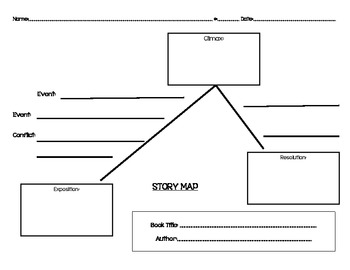

Creating an Outline Helps Avoid Problems Later OnĮven the most experienced writers can get bogged down in the details of their stories. Either way, story planners are useful tools for bringing these creative ideas together. You may have an idea for a character, or you may have a really neat setting in mind. An interesting character provides many opportunities to craft a strong short story premise.īecause the short story planner is flexible in its use, writers of all ages can start wherever they feel comfortable. For example, my daughter wrote a story about a girl who was raised as a dragon slayer only to find out she was actually a dragon halfling. For example, “What if you found a secret passage in your house that led to a different period in time?” These stories start with a premise and expand from there.Īnother story might start with a character idea. Sometimes, a short story might be born of a “What if’ question. Not every story starts with the same elements. It will also ensure they don’t lose any of their valuable story ideas.įor those who are struggling, the probing questions found in a story planner can effectively elicit new thoughts. For those with too many ideas, the story planner will help them narrow their ideas down and sort them into different buckets. You might stare at a blank page for an hour trying to come up with a single good idea.Įither way, a story plan helps establish a strong foundation for a good plot. This can be overwhelming if you don’t have a way to organize your racing thoughts.Ĭonversely, a creative writing assignment might inspire no ideas whatsoever. When a new story idea strikes, a lot of information can come with it. Why Writers Need a Story PlannerĪ story planner is an essential tool for helping writers organize their thoughts and ideas, create an outline for their story so they can avoid problems later on, and develop a visual roadmap for the writing journey that lays ahead of them.
#STORY PLANNER FOR WRITERS ONLINE FREE DOWNLOAD#
In this post, we’ll look at how using a story planner template can lead to better short stories, and I’ll give you a free download you can use on your own or with students you teach. But whether you’re a go-with-the-flow kind of writer or a die-hard planner, there are things you need to know about your story before you start writing if you want to keep moving in the right direction. I always need to know where they’re going. I write all my own stories this way too, from flash fiction to novels. I have to tell you, it’s quite hilarious when your child starts pointing out the emotional wounds of fictional characters and the universal life lessons that will help them overcome those wounds. The result is amazing: they are now adept at generating ideas, developing well-rounded characters, describing the setting, and planning out a plot with lots of twists and a satisfying resolution. For every short story assignment or passion project they do, we sit down together and use a story planner template to develop a backbone for their work. That’s why, when my kids developed a passion for writing short stories, I worked on strategies to help them plan out their stories from the beginning.

It got to the point where I stopped writing for several years because I was afraid to tackle endings. If they had an end, it was usually something like, “Suddenly, I woke up and realized it was all a dream.” Blech.

Most of my stories just faded out somewhere in the middle. I was really good at getting my characters into bad situations, but not so good at bringing them back out again. I traveled up and down the Pacific Northwest coast with my dad and my stories made some epic journeys.īut the plots always got stuck.

The only problem was that my stories never really went anywhere. I carried notebooks everywhere I went and wrote short stories (and long ones!) in them whenever I could.


 0 kommentar(er)
0 kommentar(er)
